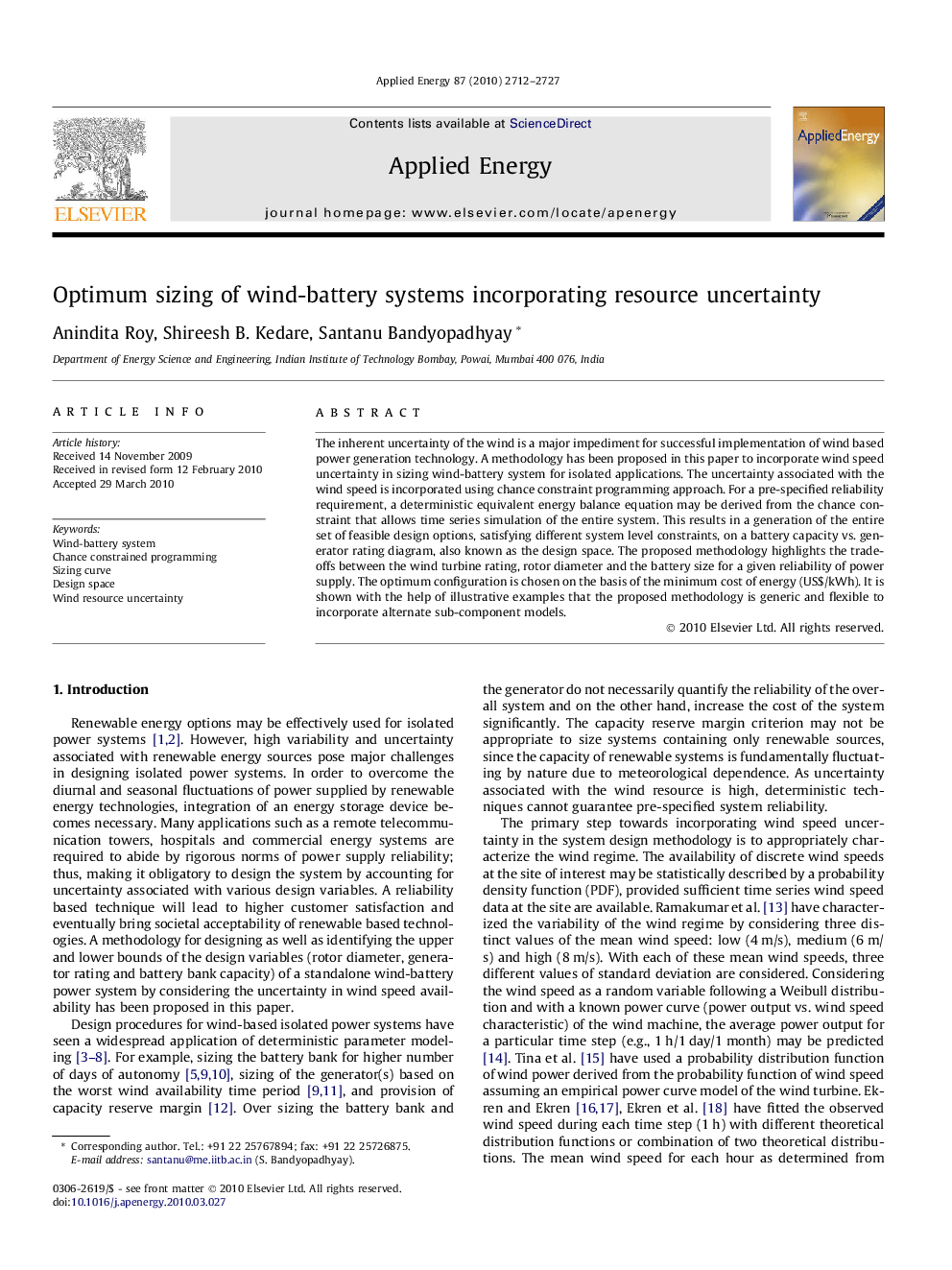| Article ID | Journal | Published Year | Pages | File Type |
|---|---|---|---|---|
| 244355 | Applied Energy | 2010 | 16 Pages |
The inherent uncertainty of the wind is a major impediment for successful implementation of wind based power generation technology. A methodology has been proposed in this paper to incorporate wind speed uncertainty in sizing wind-battery system for isolated applications. The uncertainty associated with the wind speed is incorporated using chance constraint programming approach. For a pre-specified reliability requirement, a deterministic equivalent energy balance equation may be derived from the chance constraint that allows time series simulation of the entire system. This results in a generation of the entire set of feasible design options, satisfying different system level constraints, on a battery capacity vs. generator rating diagram, also known as the design space. The proposed methodology highlights the trade-offs between the wind turbine rating, rotor diameter and the battery size for a given reliability of power supply. The optimum configuration is chosen on the basis of the minimum cost of energy (US$/kWh). It is shown with the help of illustrative examples that the proposed methodology is generic and flexible to incorporate alternate sub-component models.
